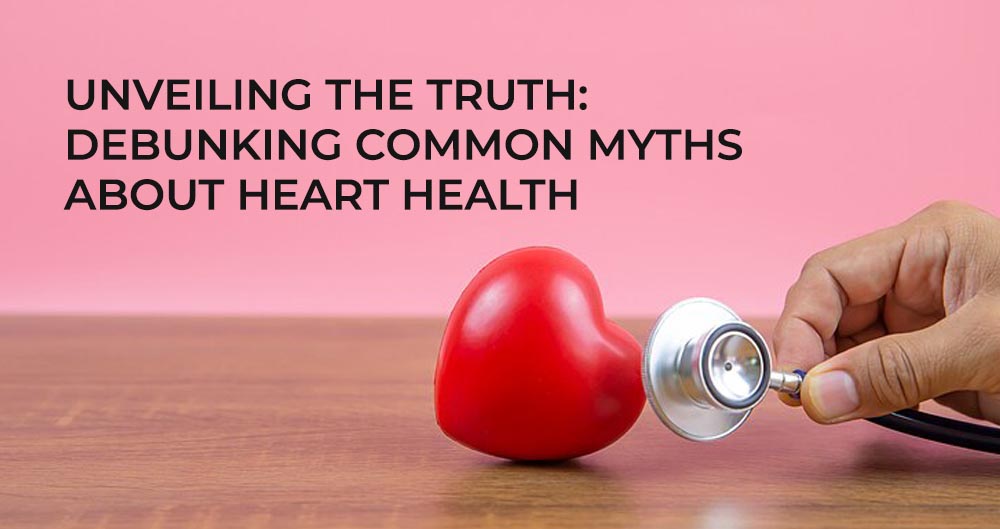
Unveiling the Truth: Debunking Common Myths About Heart Health
Heart health is a topic that's both crucial and often misunderstood. With a myriad of information available, it's easy to fall prey to misconceptions that could potentially harm rather than help. In this article, we embark on a journey to debunk some of the most prevalent myths surrounding heart health, separating fact from fiction to empower you with accurate knowledge and guide you towards a healthier heart.
Myth 1: "Heart disease only affects older adults."
One of the most dangerous misconceptions is that heart disease is an issue only for the elderly. While it's true that the risk increases with age, heart disease can strike at any age, even in young adults and adolescents. Lifestyle factors such as poor diet, lack of exercise, smoking, and stress can significantly increase the risk, irrespective of age. Thus, it's imperative to adopt heart-healthy habits early in life to safeguard against future risks.
Myth 2: "If I don't have symptoms, my heart is fine."
Another misconception is that the absence of symptoms equates to good heart health. However, heart disease is often asymptomatic in its early stages, earning it the moniker "silent killer." Regular check-ups and screenings are crucial for detecting underlying issues before they escalate into more severe problems. Additionally, being mindful of risk factors and making proactive lifestyle changes can prevent potential heart complications down the road.
Myth 3: "I can't exercise if I have heart disease."
Contrary to popular belief, exercise is not only safe but highly beneficial for individuals with heart disease, under proper medical supervision. Regular physical activity strengthens the heart muscle, improves circulation, and helps manage weight and stress—all of which are essential for heart health. However, it's crucial to consult with a healthcare professional to design a personalized exercise regimen tailored to individual needs and limitations.
Myth 4: "Low-fat diets are always heart-healthy."
While reducing saturated and trans fats is important for heart health, not all low-fat diets are created equal. Many low-fat products compensate for reduced fat content by adding sugar, salt, or refined carbohydrates, which can be detrimental to heart health. Instead, focus on a balanced diet rich in fruits, vegetables, whole grains, lean proteins, and healthy fats like those found in nuts, seeds, and fatty fish.
Myth 5: "Stress doesn't affect my heart."
Chronic stress can wreak havoc on your heart health, contributing to high blood pressure, inflammation, and unhealthy coping mechanisms such as overeating, smoking, or excessive drinking. Finding healthy ways to manage stress, such as meditation, yoga, deep breathing exercises, or engaging in hobbies, is crucial for maintaining a healthy heart and overall well-being.
Conclusion:
Dispelling myths and misconceptions surrounding heart health is paramount for promoting awareness and empowering individuals to take proactive steps towards a healthier lifestyle. By embracing evidence-based practices, staying informed, and seeking guidance from healthcare professionals, we can protect our hearts and enjoy a life filled with vitality and longevity. Remember, the truth about heart health is within reach—it's up to us to embrace it.
